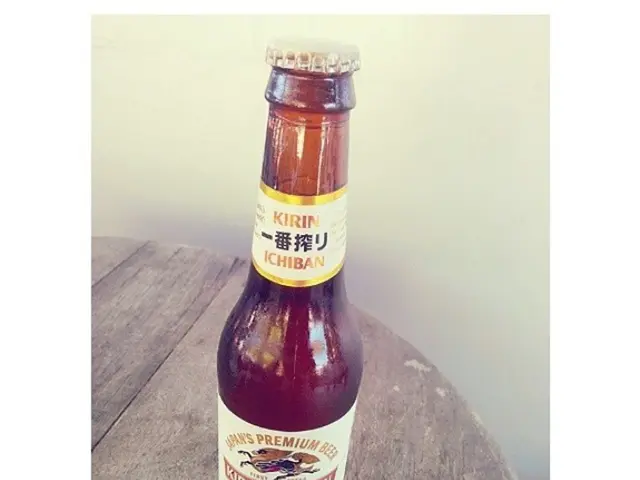Anxiety and submission follow alleged multibillion-dollar "protection payment" by the "world's leading company" to Trump
Fresh Take:
The White House hosted an unexpected ceremony, with President Donald Trump welcoming Taiwan Semiconductor Manufacturing Company (TSMC) to make a whopping $100 billion investment in the US. But the news didn't hit its intended celebratory note in Taiwan itself, as it sparked anxiety about the possibility of losing control over its top-notch semiconductor industry due to political pressure.
Former Taiwanese President Ma Ying-jeou, a member of the opposition party, quickly accused the current administration of selling TSMC as a "protection fee" to Trump. He voiced his concerns about the negative impact on public confidence, cross-strait relations, and Taiwan's geopolitical position on his Facebook page.

To ease these concerns, Taiwan's President Lai Ching-te and TSMC CEO CC Wei held a joint press conference, assuring the public that the investment would not undermine their commitment to the home base. In fact, Taiwan produces more than 90% of the world's advanced microchips, which power a vast range of products—from smartphones and AI to weapons.
Taiwan's semiconductors have been seen as a "silicon shield" for decades, serving as a deterrent against any potential Chinese invasion. The Chinese government claims Taiwan as its territory despite having no control over it and has consistently escalated military activities near the island.

Many in Taiwan are now worried that Donald Trump's negotiating tactics, as seen with Ukraine, could treat Taiwan as a bargaining chip. Some, like retiree Tammy Chao, fear that Trump might exert pressure on critical national security matters. Others like finance industry professional Fred Lin, believe this investment is a strategic move in the reality of international politics.
While China's growing assertiveness and geopolitical ambitions pose a significant threat to Taiwan's security, factors such as Taiwan's strategic location and the broader Chinese threat must also be considered. ultimate decision to launch an invasion against Taiwan depends on China's core interests, and semiconductor production is just one piece of the puzzle.

Trump administration officials have indicated their desire to focus more on Asia and the threat from China. This could imply potential shifts in US support for countries like Ukraine, to maintain its focus on Asia, raising concerns about the long-term implications for Taiwan's security.
- The potentially bipartisan applause for the TSMC investment in the U.S might be muted in Taiwan, as concerns about the security of their top-tier semtech industry escalate due to political pressure.
- In light of the White House's attempts to fortify business ties with Taiwan Semiconductor Manufacturing Company (TSMC), some Taiwanese are apprehensive about potential Taiwanese-U.S business relations, fearing that critical national security matters could be jeopardized.
- As tensions between China and Taiwan continue to rise, and Taiwan's critical role in global semiconductor production becomes increasingly vital, the potential $100 billion investment from TSMC could be seen as a strategic move in the greater context of international politics and Taiwan's national security.



